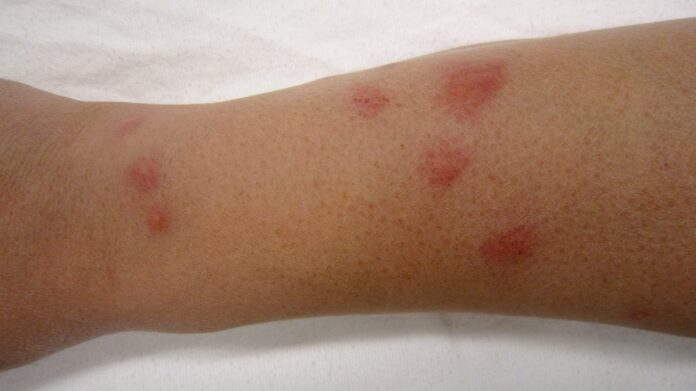
Bed Bug Bites: What You Need to Know and How to Treat Them
Introduction:
Bed bugs are small parasitic insects that feed on the blood of humans and animals, mainly at night. These pests can cause a range of issues, and one of the most common problems associated with them is the itchy and irritating bed bug bites. In this article, we will delve into the details of bed bug bites, discuss the symptoms, offer tips for identifying them, and suggest effective treatment options.
Understanding Bed Bug Bites:
Bed bug bites are typically painless, with most people unaware of being bitten until after the fact. These tiny, flat, and reddish-brown insects leave behind small, red, and swollen welts on the skin. The appearance of these bites often varies from person to person, as reaction intensity varies from mild to severe. Some individuals may not show any visible signs of being bitten.
Identifying Bed Bug Bites:
To determine whether you have been bitten by bed bugs, it’s essential to identify the distinguishing characteristics of their bites. Bed bug bites are typically grouped together in a small area or a straight line pattern, commonly found on exposed skin such as the face, neck, arms, and legs. They are usually itchy but may not be immediately noticeable.
Additionally, examining your bedding and mattresses for any signs of bed bugs can also help in confirming their presence. Look for dark spots of fecal matter or bloodstains on the sheets, mattress seams, or nearby furniture, which are common indicators of a bed bug infestation.
Symptoms and Reactions:
The symptoms of bed bug bites may vary from person to person, depending on their sensitivity to the allergens in bed bug saliva. While some individuals may exhibit mild symptoms, such as small red bumps or an itchy rash, others may experience more severe reactions. Signs of a severe reaction include intense itching, blisters, and even allergic reactions such as difficulty breathing or swelling of the tongue.
The importance of seeking medical advice cannot be stressed enough in such cases. A healthcare professional will provide the necessary guidance and prescribe appropriate treatments based on the severity of the reaction.
Treating Bed Bug Bites:
Although bed bug bites can be uncomfortable and distressing, most cases can be effectively managed at home. Here are some tips for treating bed bug bites:
1. Clean the affected area: Wash the bites with mild soap and water to prevent any potential infection.
2. Apply cold compresses: Placing a cold compress or ice pack on the bites can help reduce swelling and alleviate itching.
3. Use over-the-counter creams or ointments: Applying topical corticosteroid creams or calamine lotion to the affected area can provide relief from itching and soothe the skin.
4. Avoid scratching: As tempting as it may be, scratching bed bug bites can lead to further irritation, infection, and even scarring. Trim your nails and find alternative ways to relieve the itch, such as using a cold compress or applying a designated anti-itch cream.
Preventing Bed Bug Bites:
Prevention is undoubtedly the best approach when it comes to dealing with bed bug bites. Here are a few preventive measures you can take to minimize the risk:
1. Regularly inspect your bedding and furniture: Routinely check for signs of bed bugs or their fecal matter on mattresses, sheets, and furniture.
2. Vacuum and clean regularly: Vacuuming your home regularly, paying particular attention to crevices and cracks, can help remove any existing bed bugs or their eggs.
3. Cover mattresses and box springs: Use mattress encasements that are specifically designed to prevent bed bugs from infesting your mattress and box springs.
4. Limit clutter: Reducing the amount of clutter in your living space can eliminate potential hiding places for bed bugs and allow for easier detection and eradication.
Conclusion:
Bed bug bites can be a nuisance, causing discomfort, itching, and potential allergic reactions. By understanding the characteristics of these bites, identifying their symptoms, and following proper treatment measures, you can alleviate symptoms and prevent any worsening complications. Maintaining a clean and clutter-free environment, along with regular inspections, can go a long way in preventing bed bug infestations. Remember, seeking professional help is crucial in severe cases to ensure proper medical care and treatment.


















